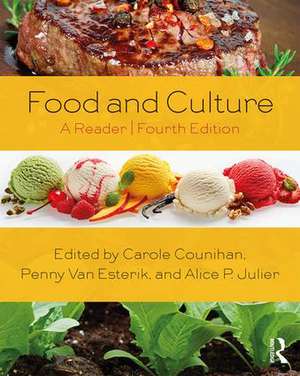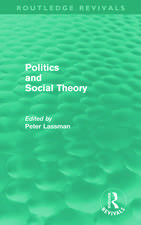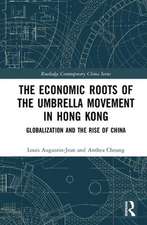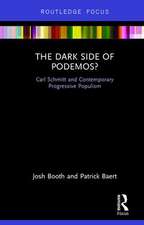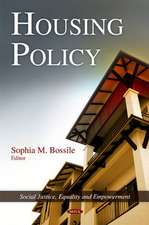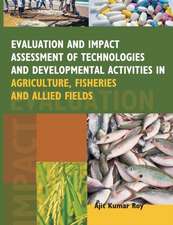Food and Culture: A Reader
Editat de Carole Counihan, Penny Van Esterik, Alice Julieren Limba Engleză Paperback – 13 dec 2018
| Toate formatele și edițiile | Preț | Express |
|---|---|---|
| Paperback (1) | 493.30 lei 22-36 zile | +41.71 lei 5-11 zile |
| Taylor & Francis – 13 dec 2018 | 493.30 lei 22-36 zile | +41.71 lei 5-11 zile |
| Hardback (1) | 1044.35 lei 43-57 zile | |
| Taylor & Francis – 26 noi 2018 | 1044.35 lei 43-57 zile |
Preț: 493.30 lei
Preț vechi: 536.19 lei
-8% Nou
Puncte Express: 740
Preț estimativ în valută:
94.44€ • 97.12$ • 78.34£
94.44€ • 97.12$ • 78.34£
Carte disponibilă
Livrare economică 27 ianuarie-10 februarie
Livrare express 10-16 ianuarie pentru 51.70 lei
Preluare comenzi: 021 569.72.76
Specificații
ISBN-13: 9781138930582
ISBN-10: 113893058X
Pagini: 564
Ilustrații: 9 Line drawings, black and white; 9 Halftones, black and white; 18 Illustrations, black and white
Dimensiuni: 187 x 235 x 34 mm
Greutate: 1.04 kg
Ediția:4 ed
Editura: Taylor & Francis
Colecția Routledge
Locul publicării:Oxford, United Kingdom
ISBN-10: 113893058X
Pagini: 564
Ilustrații: 9 Line drawings, black and white; 9 Halftones, black and white; 18 Illustrations, black and white
Dimensiuni: 187 x 235 x 34 mm
Greutate: 1.04 kg
Ediția:4 ed
Editura: Taylor & Francis
Colecția Routledge
Locul publicării:Oxford, United Kingdom
Cuprins
Part1: Meaning and Practice; 1. Toward a Psychosociology of Contemporary Food Consumption Roland Barthes; 2. The Culinary Triangle; Claude Lévi-Strauss; 3. Deciphering a Meal Mary Douglas; 4. Japanese Mothers and Obentōs: The Lunch Box as Ideological State Apparatus Anne Allison; 5. Eating Cultures: Incorporation, Identity and Indian Food Uma Narayan; 6. Cooking Skill, the Senses, and Memory: The Fate of Practical Knowledge David Sutton; 7. Race, Place and Taste: Making Identities Through Sensory Experience in Ecuador Emily Walmsley; 8. The Raw & the Rotten: Punk Cuisine Dylan Clark; Part 2: Representation and identity; 10. Short excerpt from Distinction Pierre Bourdieu; 11. Nourishing Arts, from The Practice of Everyday Life Luce Giard; 12. Queering Food Studies: Foodways, Heteronormativity and Hungry Women in Chicana Lesbian Literature Julia Ehrhardt; 13. A Way Outa No Way: Eating Problems among African-American, Latina, and White Women Becky Wangsgaard Thompson; 14. Mexicanas’ Food Voice and Differential Consciousness in the San Luis Valley of Colorado Carole Counihan; 15. I haven’t Eaten if I Don’t have my Soup and Fufu: Cultural Preservation through Food and Foodways among Ghanaian Migrants in the US Psyche Williams-Forson; 16. The Signifying Dish: Autobiography and History in Two Black Women’s Cookbooks Rafia Zafar; 17. Rural Masculinity in Transition Gender Images in Tractor Advertisements Berit Brandth; 18. Authenticity in America: Class Distinctions in Potato Chip Advertising Joshua Freedman and Dan Jurafsky; Part 3: Global and Local production; 19. Industrial Food: Towards the Development of a World Cuisine Jack Goody; 20. Remaking "Traditions": How we eat what we eat and the changing political economy of food Harriet Friedmann; 21. Breast-Feeding as Food Work Penny Van Esterik; 22. On the Move for Food: Three Women Behind the Tomato’s Journey Deborah Barndt; 23. If it ain’t Alberta, It ain’t Beef: Local Food, Regional Identity and (Inter)national Politics Gwendolyn Blue; 24. From the Bottom Up: The Global Expansion of the Chinese Vegetable Trade for New York City Markets Valerie Imbruce; 25. Jolly Dogs and McSpaghetti: Anthropological Reflections on Global/Local Fast-Food Competition in the Philippines Ty Matejowsky; 26. Too hot to handle Tanachai Mark Padoongpatt; 27. "Old Stock" Tamales and Migrant Tacos: Taste, Authenticity, and the Naturalization of Mexican Food Jeffrey Pilcher; Part 4: Food Politics; 28. Time, Sugar, and Sweetness Sidney Mintz; 29. Re-purposing the master's tools: the open source seed initiative and the struggle for seed sovereignty Jack Kloppenburg; 30. Preface to the Tenth Anniversary Edition. Food Politics: How the Food Industry Influences Nutrition and Health Marion Nestle; 31. The Disappearance of Hunger in America Patricia Allen 32. Rooting Out the Causes of Disease: Why Diabetes is So Common Among Desert Dwellers Gary Paul Nabhan
he Political Economy of Obesity: The Fat Pay All
Alice Julier
he Political Economy of Obesity: The Fat Pay All
Alice Julier
- Expanding Access and Alternatives: Building Farmers’ Markets in Low-Income Communities
Lisa Markowitz
- Slow Food and the politics of ‘Virtuous Globalisation"
Alison Leitch - Learning democracy through food justice movements
Charles Levkoe
Notă biografică
Carole Counihan is Professor Emerita of Anthropology at Millersville University. She has been studying food, gender, and culture in Italy and the USA for forty years. She is author of A Tortilla Is Like Life: Food and Culture in the San Luis Valley of Colorado (2009), Around the Tuscan Table: Food, Family and Gender in Twentieth Century Florence (2004), and The Anthropology of Food and Body (1999). She is co-editor of Taking Food Public (2012), Food Activism (2014), and Making Taste Public: Ethnographies of Food and the Senses (forthcoming) and editor-in-chief of the scholarly journal Food and Foodways.
Penny Van Esterik is Professor Emerita of Anthropology, retired from York University, Toronto, where she taught nutritional anthropology, advocacy anthropology and feminist theory. Her fieldwork was primarily in Southeast Asia (Thailand and Lao PDR). She is a founding member of WABA (World Alliance for Breastfeeding Action) and has developed articles and advocacy materials on breastfeeding and women’s work, breastfeeding and feminism, infant feeding and food security and contemporary challenges to infant feeding such as environmental contaminants and HIV/AIDS. Past books include Beyond the Breast-Bottle Controversy, Materializing Thailand, Taking Refuge: Lao Buddhists in North America, and The Dance of Nurture.
Alice Julier is Associate Professor and Director of the Graduate Program in Food Studies at Chatham University. She is also the director of the Center for Regional Agriculture, Food, and Transformation (C.R.A.F.T.). She writes about material life, labor, consumption, and inequality in food systems. Her work includes, "Mapping Men onto the Menu" in Food and Foodways, "Family and Domesticity" in A Cultural History of Food: The Modern Age; "Julia at Smith" in Gastronomica, and "Hiding Race and Class in the Discourse of Commercial Food" in From Betty Crocker to Feminist Food Studies. Her book is entitled Eating Together: Food, Friendship, and Inequality. She is the past president of Association for the Study of Food and Society.
Penny Van Esterik is Professor Emerita of Anthropology, retired from York University, Toronto, where she taught nutritional anthropology, advocacy anthropology and feminist theory. Her fieldwork was primarily in Southeast Asia (Thailand and Lao PDR). She is a founding member of WABA (World Alliance for Breastfeeding Action) and has developed articles and advocacy materials on breastfeeding and women’s work, breastfeeding and feminism, infant feeding and food security and contemporary challenges to infant feeding such as environmental contaminants and HIV/AIDS. Past books include Beyond the Breast-Bottle Controversy, Materializing Thailand, Taking Refuge: Lao Buddhists in North America, and The Dance of Nurture.
Alice Julier is Associate Professor and Director of the Graduate Program in Food Studies at Chatham University. She is also the director of the Center for Regional Agriculture, Food, and Transformation (C.R.A.F.T.). She writes about material life, labor, consumption, and inequality in food systems. Her work includes, "Mapping Men onto the Menu" in Food and Foodways, "Family and Domesticity" in A Cultural History of Food: The Modern Age; "Julia at Smith" in Gastronomica, and "Hiding Race and Class in the Discourse of Commercial Food" in From Betty Crocker to Feminist Food Studies. Her book is entitled Eating Together: Food, Friendship, and Inequality. She is the past president of Association for the Study of Food and Society.
Descriere
This innovative and global best-seller helped establish food studies courses throughout the social sciences and humanities when it was first published in 1997. The fourth edition of Food and Culture contains favorite articles from earlier editions and several new pieces on food politics, globalism, agriculture, and race and gender identity.
